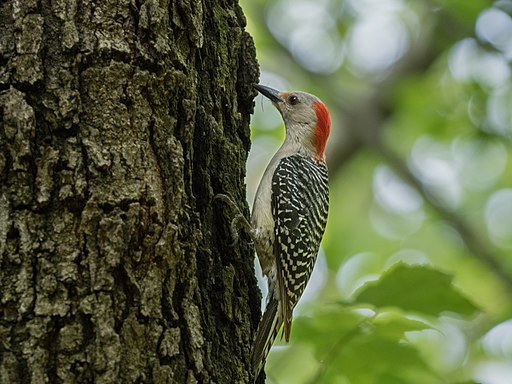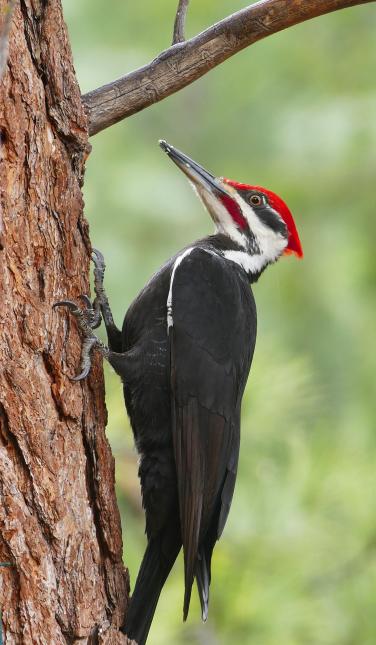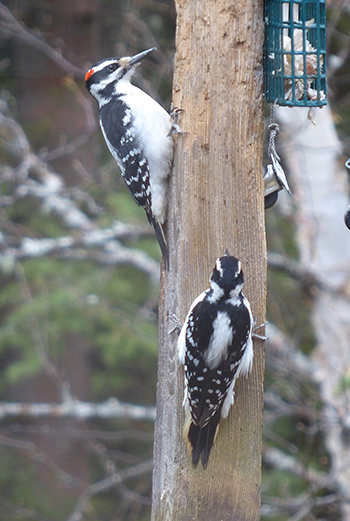Discover the Interesting World of Woodpeckers: Every Little Thing You Required to Know
The world of woodpeckers is a world loaded with special habits, intricate adjustments, and a diverse array of types. From their habitats and circulation patterns to their feeding practices and specialized physiological functions, woodpeckers have long astounded the interest of ornithologists and nature fanatics alike. Comprehending the intricacies of these interesting birds provides a glance into the intricate interplay in between their biology and the environment. As we check out the world of woodpeckers additionally, we uncover a riches of details that drops light on their relevance in environments and the challenges they deal with in an ever-changing globe.
Woodpecker Habitats and Distribution
Woodpeckers populate a varied array of settings worldwide, showcasing flexibility in their circulation patterns. These resistant birds are found in forests, woodlands, savannas, and deserts across various continents, demonstrating their ability to thrive in different climatic problems. In The United States and Canada, for instance, woodpeckers can be spotted in both coniferous and deciduous woodlands, using their solid beaks to forage for pests and develop nesting dental caries in trees. In a similar way, in Africa, particular woodpecker types have adapted to arid environments, such as the acacia woodlands, where they play an essential role in controlling insect populaces.

Feeding Behaviors and Diet Plan
Among the different elements of their habits, woodpeckers display unique feeding routines and nutritional choices. These birds are mostly insectivores, with a diet regimen that consists of ants, beetles, caterpillars, and various other bugs found in trees. Woodpeckers utilize their solid beaks to pierce into the bark of trees, probing for insects and larvae hidden beneath the surface. Along with pests, woodpeckers additionally eat nuts, seeds, fruits, and sap. Some types have specialized tongues with barbed suggestions that help them extract insects from holes in timber.
Woodpeckers are recognized for their drumming actions, which serves not only to communicate with various other woodpeckers however also to locate food. The quick drumming noise is created by the bird pecking on powerful surface areas like dead trees or metal posts. This habits can draw in insects concealed in the wood, allowing the woodpecker to identify their visibility and eat them.
Unique Adjustments for Tree Climbing
In their experienced search visit this web-site of insects hidden within tree bark, woodpeckers have developed exceptional physiological attributes that outfit them with unique adaptations for efficient tree climbing. Woodpeckers have strong neck muscle mass and a distinct skull structure that take in the effect of continuous pecking, enabling them to climb vertically without triggering damage to their brains. These adaptations showcase the amazing evolutionary design that enables woodpeckers to navigate trees with precision and performance.
Diverse Woodpecker Variety Worldwide
With over 200 various varieties spread out across different habitats worldwide, the family of Picidae encompasses a remarkable variety of woodpeckers. These birds can be found in forests, woodlands, savannas, and even city locations, showcasing their flexibility to different atmospheres. From the renowned Northern Flicker in North America to the vivid and evasive Crimson-backed Flameback in Asia, each woodpecker types exhibits unique features in regards to quill, behavior, and environment choice.
Woodpeckers vary greatly in dimension, with the small Downy Woodpecker measuring around 6-7 inches in size, while the effective Lineated Woodpecker can rise to 17 inches - Woodpeckers in Florida. Their beaks also can be found in different sizes and shapes, showing their feeding habits. Some varieties focus on extracting pests from tree bark, like the Acorn Woodpecker, while others, such as the Black-cheeked Woodpecker, feed upon fruits and seeds

Conservation Efforts and Difficulties
Conservation campaigns for woodpecker populaces are crucial in reducing the effect of environment loss and various other hazards encountering these varied avian species. Woodpeckers face various difficulties to their survival, mostly because of logging, urbanization, environment adjustment, and intrusive varieties. To address these issues, preservation initiatives concentrate on protecting and restoring woodpecker environments, implementing lasting forestry techniques, and elevating recognition concerning the value of these birds in ecological communities.
One substantial challenge Going Here in woodpecker conservation is the fragmentation of their environments, bring about separated populaces that are much more susceptible to extinction - Woodpeckers in Florida. Conservationists work to develop wild animals passages and safeguarded areas that attach these fragmented environments, enabling woodpeckers to move in between various areas for feeding, breeding, and sanctuary

Verdict
In final thought, woodpeckers are interesting birds with special adaptations for tree climbing and feeding habits. Further research and preservation activities are required to make sure the survival of woodpeckers in the wild.
Comments on “Running Into Woodpeckers in Florida Variety: Environments and Habits”